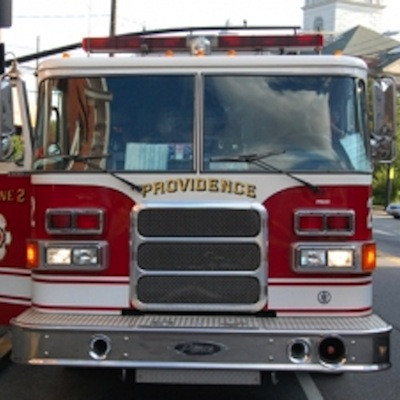Gencarella: What Side Are You On? Do Organizations & Consortium Members Really Support RhodeMap RI?
Thursday, December 25, 2014
In the grant application submission for RhodeMap RI, the Division of Planning states that it “is seeking funds to develop a Regional Plan for Sustainable Development (RPSD)” from the US Department of Housing and Urban Development. Does that sound like an economic development plan to you? On its face, it sounds like a plan for sustainable development, which is a euphemism for growing government through centralized planning.
“Make it Happen RI” – Make what happen?
Given that the RI Foundation has been working hard to gather business people and organizations together to “Make It Happen RI”, one might wonder why the small crumbs that RhodeMap RI throws to actual economic development (referred to in the grant submission as a “component” of the Regional Plan for Sustainable Development) are enough for the RI Foundation to satisfy the call for an economic development plan. Well, it seems that the RI Foundation has been working on the “Sustainable Development” part for a while. At least for the past couple of years, from 2010-2012, they have donated a quarter of a million dollars to Grow Smart RI - a “Sustainable Development” activist organization. So, no surprise there.
GET THE LATEST BREAKING NEWS HERE -- SIGN UP FOR GOLOCAL FREE DAILY EBLASTThen there is the Providence Chamber of Commerce. From a business perspective, one might wonder about the small crumb scenario, given that one would assume a business organization would support free markets and such. But, if you listen to Dan Beardsley, Executive Director of the League of Cities and Towns, it may be that all is not as it would seem. While at the December 11 Planning Council meeting, where the Council voted unanimously to adopt RhodeMap RI, Mr. Beardsley was explaining to a gentleman nearby that “people, ostensibly representing constituency groups that worked on this, provided input into this, have now broken away… So you’ve got the Chamber of Commerce, was involved in this statewide, now the Chamber doesn't’t want it to pass. You have a lot of people grandstanding.”
So, does the Chamber support the Regional Plan for Sustainable Development or oppose it? This conversation also begs the question, what other organizations or people who worked on this have broken away that the public does not yet know about?
Not all cities and towns stand as one
It is clear, however, that the League of Cities and Towns, an organization that represents 36 of RI’s 39 cities and towns, supports RhodeMap RI given that three of their members were on the Council, which voted unanimously to adopt the Plan. At least one quarter of those cities and towns don’t agree with that position - they have passed Resolutions or written letters indicating their opposition to the adoption of the Plan. Did the League of Cities and Towns consult with those Town Council members in an effort to represent all viewpoints?
How many “break-aways” are there?
And of course, there is Cranston Mayor Allan Fung. As we mentioned in our last article the Mayor crafted a letter that stated his reasons for opposing the Regional Plan for Sustainable Development. Perhaps he is one of those people who ‘broke away’ that Dan Beardsley referenced. Remember, Cranston was part of the consortium to craft the Regional Plan for Sustainable Development.
Time will tell
So we are left to wonder, who is really supporting this Regional Plan for Sustainable Development and why? How many of those original consortium members, and their elected councils and/or executive branches, support the Plan? Do the officials in the towns of Burrillville, Westerly, and North Kingstown support the Plan? Do the officials in the cities of Providence, Warwick, E. Providence, Pawtucket, and Newport support the plan? Time will tell as more and more municipalities have time to review the 180 page Regional Plan for Sustainable Development.
In the meantime, you should consider reading the 20 page grant submission. The Division of Planning clearly lays out to the Federal government, why Rhode Island is the perfect place to invest their money.
Pam Gencarella is a member of OSTPA, a taxpayer advocacy organization in Rhode Island.
Related Slideshow: The 15 Costliest Government Programs in RI
Related Articles
- Pam Gencarella: Introducing The People’s Resolution
- Pam Gencarella: A Civics Lesson From the East Bay
- Pam Gencarella: A Race to the Top or Running in Circles?
- Pam Gencarella: Something’s Rotten in the State of Denmark, er, RI
- Pam Gencarella: Will Spring Bring Renewed Hope to RI?
- Pam Gencarella: Ethics is Good Business for Rhode Island
- Pam Gencarella: Another Bubble to Burst in RI?
- Pam Gencarella: RI Has Lost Cabin Pressure
- Pam Gencarella: Witness the Crowding Out of Public Services
- Pam Gencarella: Context Is What’s Needed - Part I
- Pam Gencarella: Surprised, Bewildered, Shocked, Disappointed
- Pam Gencarella: Is the Pendulum Swinging Back Toward the Center?
- Pam Gencarella: Don’t Touch That Dial
- Pam Gencarella: Why You Should Care About a Constitutional Convention
- Pam Gencarella: It’s Easy to Vote for Santa
- Pam Gencarella: What’s All the Fuss About RhodeMap RI? If You Like Your Municipality, Keep It


































